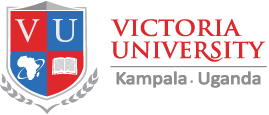Quick Facts
Credential
Master's Degree
Delivery Options:
Both On-Campus and Online - Some of your Classes will be in-person, on campus and some will be done online.
Duration: 2 years
With a typical full-time course load, this programme will take 2 years to complete.
Language of instruction
english
Admission Requirements
To be admitted for the Victoria University's Uganda Master of Laws General, you must have achieved:
An honor's degree in Law from an accredited university.
A degree in any other field is also eligible for the degree having acquired a second class division or its equivalent and having been vetted by the Faculty of Humanity and Social Science Admissions Board.
Applicants whose first language is not English will be required to demonstrate a proficiency in the English language by passing an English proficiency Test conducted by the University.
What you will Learn
By the end of the Master of Laws General programme, the postgraduate students should be able to:
Use various research methods to explore and analyse socio-legal problems and compile the findings into a publishable format providing solutions to societal problems.
Discuss the law in its legal framework, social, economic and political context in which it is constructed and implemented.
Apply legal theory and philosophy in analyzing legal problems and crafting solutions to them.
Critically evaluate social, economic and political problems from a legal point of view and suggest solutions that promote social and economic justice and harmony.
Critically and logically evaluate scholarly legal texts, analyse and synthesise texts to produce compelling propositions about legal matters.
Write and publish academic journal articles and text books to contribute to existing knowledge and text books to contribute to existing knowledge on natural resources.
Career Opportunities
Victoria University's Master of Laws General programme opens up a plethora of career opportunities in various sectors of the legal field. Some of the potential career paths for graduates of this program include:
Legal Practice: Graduates can pursue careers in private law firms as lawyers, advocates, legal consultants, or legal advisors. They can specialize in areas such as civil law, criminal law, commercial law, intellectual property law, family law, and more.
Government Agencies: Graduates can work in government agencies at local, national, or international levels, such as ministries, departments, and regulatory bodies, as legal advisors, legal officers, policy-makers, or in administrative roles.
International Organizations: Graduates can work in international organizations such as the United Nations, African Union, World Bank, International Criminal Court, and other regional or global organizations, as legal advisors, human rights officers, or in other legal and policy-related roles.
Non-profit Organizations: Graduates can work in non-profit organizations, NGOs, and advocacy groups focused on areas such as human rights, environmental law, social justice, and other legal and social issues.
Academia: Graduates can pursue careers in academia as lecturers, professors, or researchers in law schools, universities, research institutions, and think-tanks, contributing to legal education and scholarship.
Legal Research and Policy-making: Graduates can work as legal researchers, policy analysts, or consultants in research institutions, government agencies, or think-tanks, providing legal expertise and contributing to policy development and implementation.
Alternative Dispute Resolution: Graduates can work as mediators, arbitrators, or negotiators, helping parties resolve legal disputes through alternative dispute resolution mechanisms.
Entrepreneurship: Graduates can start their own legal consultancy firms, legal services, or other entrepreneurial ventures in the legal field, utilizing their legal knowledge and skills to provide specialized services to clients.
Tuition & Fees
The tuition and fee amounts are estimates based on current academic year's rates. For financial planning purposes, please use these totals as an approximate estimate of your costs. Actual fees may vary by term and enrolment activities.
Download
